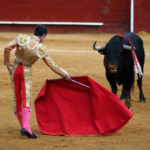Throughout history, monarchies have been steeped in traditions, many of which seem strange or even downright bizarre to the modern observer. From odd eating habits to unusual ceremonies, these peculiar customs offer a fascinating glimpse into the lives of royalty. Here are ten of the weirdest royal traditions that have endured through the ages.
1. The King’s Corset
During the reign of King Louis XIV of France, it was customary for the king to wear a corset. This practice was meant to give the Sun King an upright and regal posture, reflecting his divine status. Despite the discomfort, Louis XIV maintained this tradition throughout his life, setting a fashion trend that spread among the French nobility.
2. The Sultan’s Caged Princes
The Ottoman Empire had a peculiar way of ensuring the sultan’s throne was secure: keeping potential heirs in a “kafes” or cage. This was a luxurious, yet confining, part of the palace where princes lived isolated lives to prevent them from staging coups. This practice, although intended to ensure stability, often led to psychological issues among the caged princes.
3. Czar Peter’s Beards
In the late 17th century, Russian Emperor Peter the Great introduced a beard tax as part of his efforts to modernize Russia. Men who wanted to keep their beards had to pay a fee and carry a token that proved their payment. Peter believed that clean-shaven faces were more aligned with Western European customs, which he admired.
4. The Royal Touch
Medieval European monarchs, especially in England and France, were believed to possess the “royal touch,” a divine ability to cure scrofula (a form of tuberculosis). This practice involved the monarch laying hands on the afflicted and was a significant ceremonial duty. The belief in the healing power of kings continued for centuries, despite its dubious medical efficacy.
5. The Emperor’s Forbidden City
The Ming and Qing emperors of China resided in the Forbidden City, a sprawling palace complex in Beijing. The emperor and his court lived in strict seclusion, with very limited contact with the outside world. Only select individuals could enter this sacred space, underscoring the emperor’s semi-divine status and absolute power.
6. Bizarre Coronation Banquets
In medieval England, the coronation of a new monarch was often followed by an extravagant and somewhat bizarre banquet. One notable example is the coronation of King James II in 1685, which featured an assortment of exotic dishes, including roasted peacocks and sturgeon. These feasts were designed to showcase the wealth and power of the monarchy, but often bordered on the grotesque.
7. The Royal Body Double
In ancient Egypt, Pharaohs often used body doubles to protect themselves from potential assassination attempts. These doubles, chosen for their resemblance to the ruler, were used during public appearances and military campaigns. The tradition underscores the constant threat of danger faced by monarchs and the lengths they would go to ensure their safety.
8. The Royal Eunuchs
In many ancient and medieval royal courts, eunuchs held significant power and influence. In the Chinese and Ottoman empires, eunuchs were trusted servants who managed the royal household and guarded the harems. Their unique status allowed them to become key political players, despite their initial role as servants.
9. Feeding the Monarch’s Pets
Kings and queens have often had a penchant for exotic pets, and feeding these animals could become a royal spectacle. For instance, King Louis XI of France had a collection of lions, which were fed in public displays meant to awe and entertain. The care and feeding of royal pets sometimes reflected the monarch’s power and eccentricities.
10. The King’s Fool
The court jester, or fool, was a staple in medieval and Renaissance royal courts. These individuals were tasked with entertaining the monarch and providing humor, often through sharp wit and satirical performances. Remarkably, jesters could speak more freely than most courtiers, sometimes using humor to critique the king’s decisions without fear of retribution.



GIPHY App Key not set. Please check settings